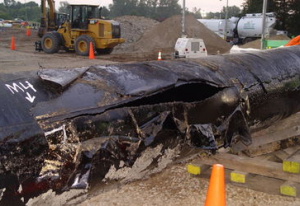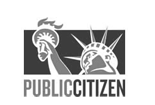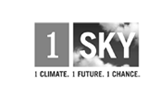In a recent Op-Ed by U.S. Chamber President Tom Donohue, he makes several lofty claims about the proposed Keystone XL pipeline that are riddled with exaggerations and falsehoods. With bedfellows like Shell, Valero, ConocoPhillips and Koch Industries set to rake in major profits from the exploitation of Alberta tar sands oil (the second biggest carbon pool on the planet, next to Saudi Arabia), the U.S. Chamber and the American Petroleum Institute (the oil industry’s umbrella lobbying organization) have resorted to flat-out lying and fear-mongering in the interest of drumming up national support for a project that would alter ecosystems, economies, communities and the climate beyond remediation.
Here’s to shedding a little light and transparency on the purported “benefits” of the Keystone XL pipeline:
Myth: According to Donohue and TransCanada (the company overseeing the KXL project), construction of the pipeline would create 20,000 manufacturing and construction jobs, and 119,000 jobs total (indirect and direct).
Fact: Cornell University just released a study finding that the pipeline would create no more than 2,500-4,650 temporary direct construction jobs for two years and that “the industry’s claim that KXL will create 119,000 total jobs is based on a flawed and poorly documented study commissioned by TransCanada (The Perryman Group study).”
Note: The energy security and economic growth that we’re in need of can already be found in clean, renewable energy development—green jobs already employ more people in America than oil or gas jobs combined.
Myth: The Keystone XL pipeline will be good for the American economy.
Fact: The same Cornell study found that that if the pipeline is constructed, oil already being sent to Midwest refineries will be diverted to the Gulf for export, and fuel prices in 15 states will increase as a result—thus negating any minor positive economic impacts that “job creation” would bring from the project.
Myth: Obtaining tar sands oil from Canada will reduce our dependence on foreign oil.
Fact: Keystone XL is an export pipeline. Oil Change International reports that, based on information from industry documents, “the Port Arthur, Texas, refiners at the end of its route are focused on expanding exports to Europe, and Latin America. Much of the fuel refined from the pipeline’s heavy crude oil will never reach U.S. drivers’ tanks.
Myth: Keystone XL pipeline technology will meet or exceed world-class safety and environmental standards, and will pose minimal risk to the environment.
Fact: TransCanada’s first Keystone pipeline, in operation since 2010, has already had 12 spills since last year, with one “six-story geyser” dumping 21,000 gallons of oil in North Dakota. Additionally:
- The new pipeline would run through six Midwestern states and across the pristine Ogallala Aquifer, which provides fresh drinking water to 2 million Americans in eight states and supports significant fractions of the nation’s economy through irrigation for livestock, food and fiber crops. If the pipeline were to leak, the consequences would be disastrous for the Midwest and the entire country writ large.
- There is a marked lack of independent, peer-reviewed scientific research demonstrating that transporting the tar sands crude oil using conventional oil pipeline technology is actually safe. The “DilBit” crude oil is more corrosive than regular oil, and it would be thinned with other petroleum condensates and then pumped at high pressure and at a temperature of more than 150 degrees through the pipeline.
- Even if the Keystone XL pipeline never ruptured (an unlikely scenario), the completion of this project will have a devastating and economically disastrous impact on the climate. Dr. James Hansen, director of NASA’s Goddard Institute for Space Studies, is vehemently opposed to the Keystone XL pipeline, stating that “exploitation of tar sands would make it implausible to stabilize climate and avoid disastrous global climate impacts.“ Additionally, twenty of the nations leading scientists have just released a letter to Obama asking him not authorize the permit for the Keystone XL.
Myth: The Keystone XL is needed to meet a growing demand for oil in the U.S.
Fact: In a shrinking U.S. market, Keystone XL is not needed. Since the project was announced, the oil industry acknowledges that higher fuel economy standards and slow economic growth mean declining U.S. oil demand, even as domestic production is booming (Oil Change International).
Myth: President Obama should find that the Keystone XL pipeline serves the best interests of the nation and approve the project.
Fact: The Keystone XL will only serve the interests of a handful of tar sands producers and exporters, and the corporate and oil industry lobbying groups that support them, like the U.S. Chamber of Commerce. The impacts that average Americans will feel will be higher gas prices, economic downturn as a result of environmental destruction and water contamination, and a ruined, unstable climate.









